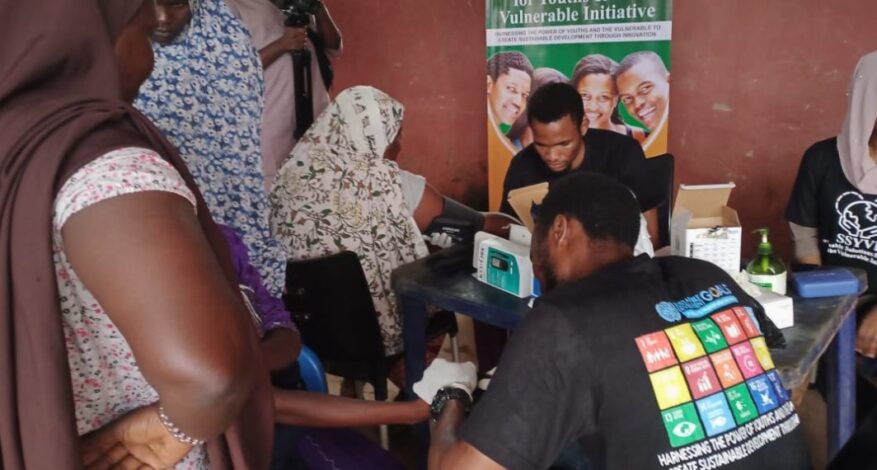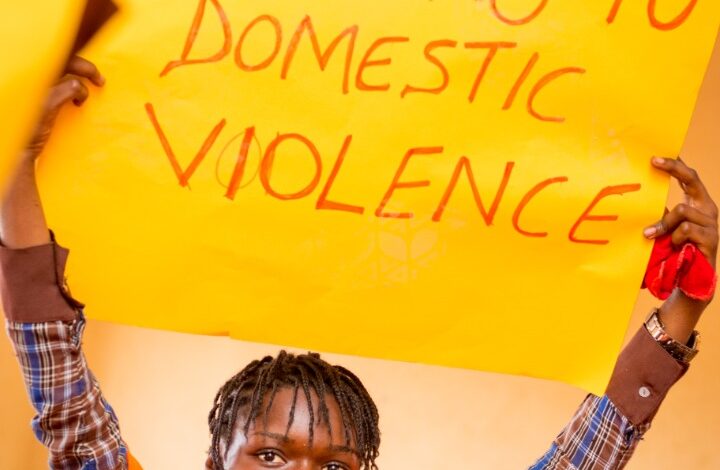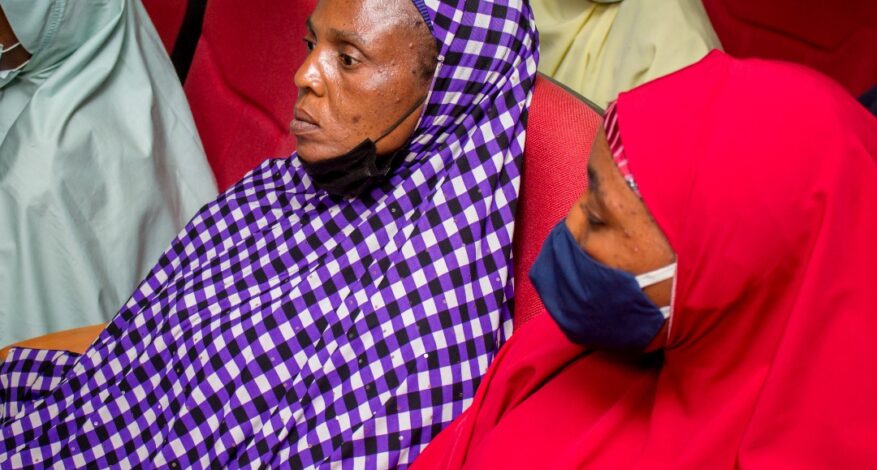Group Takes Free Medical Care To Abuja IDPs
The Sustainable Solutions for Youths and the Vulnerable Initiative (SSYVI), has supported the Internal Displaced Persons (IDPs) Camp living in Durumi, Abuja, with free medical care, and basic information that would improve the lives of mothers and children in the community.
Speaking at the exercise yesterday in Abuja, the founder of SSYVI, Ilori Deborah Ayotola said the initiative will ensure inclusive, total, and free medical care for all persons of concern.
Ayotola said, “It is a youth initiative that was founded out of deep passion for the vulnerable people. It is youth organization because the larger percent of population in Nigeria is comprises of the youths and I’m glad to tell you that with the youth limitations are boundless.
“So what we do is that we use our youths in different professionals, expertise to create lasting solution to community development for the vulnerable people within the FCT and across all the six geopolitical zones of the country.
“We majorly work with IDPs, as much as we work with other vulnerable communities and you will agree with me that there are other vulnerable communities that are not IDPs but they are living in a vulnerable condition. So what we do is we go to this communities and we do what we call community need assessment in public and we see how we can come in. We do not have money to give to them but as youths we have our skills. Some of us are professionals, so we use our professionalism to give them aids in their communities.
“We will give them test on blood sugar, BP and the doctors will be doing the test and can also seeing them basically. So that is what we being. We have work with public schools because we strictly do it for vulnerable people. We also train the women on different skills and give them some little token to start something and sustain their family.
“So today we are in this IDPs and this our fourth time of coming in this IDPs this year. We are always coming to sensitize them on sexual and reproductive health because we found out that some of these women who get pregnant every year and they can easily contact communicable disease because of the endemic nature of where they stay. So we try as much as possible to go there and alleviate what they are going through. We have four projects with this IDPs camp; first, is education for the children, maternal and child health test for the women and children, good health and general well being which is what we are doing presently.”
She said that as a Nigerian she is being exposed to so many things and as a passionate advocate and so she started going out for outreach programme and she has seen quite a lot at the communities visited. And that motivated and I continue with it when I was in my NYSC year and that helped to got ministerial award. So that is how I continue.
She said that the initiative resources of funds is her personal funds and her team. A lot of them are professionals. They are doctors; some are physiotherapists, pharmacists, and microbiologists because of the passion and when they come here they will be like what can we do and we try as much as possible not to do capital intensive projects that will involve big money that we cannot afford but the little that we can afford we do it.
Coordinator FCT Abuja Based IDPs Health Project As well as Spokesperson Abuja Based IDPs Camps, Idris Ibrahim Hallilu, has thanks the Sustainable Solutions for Youth and the Vulnerable Initiative (SSYVI), for always being around the camp and doing their best to reach out to their needs.
According to him, the SSYVI have been visiting the camp for the past four years, so even if I just managed to come and see as they are arriving is very a big thing to me because we are very happy about their coming and what they have been doing to us.
“They always reach out to us to sensitize, educate us and advice and warn us about the the things to take so that we can be able to avoid undue risk. So we are happy.
“Sustainable Solutions for Youth and the Vulnerable Initiative, to go beyond the reaching out to test and to sensitize. Therefore, at the moment, we are facing critical conditions and lack of accessibility to Primary Health Care, secondary health care, and tertiary health care.
” I want to tell you that no hospital as of now welcome an IDP in FCT and the worst part of the story is that not even emergency cases like a domestic accident, automobile accidents, and children playing maybe something happened or auto crash or dog bite, for the past four years or five years hospitals in FCT have been rejecting IDP patients,” he said.




